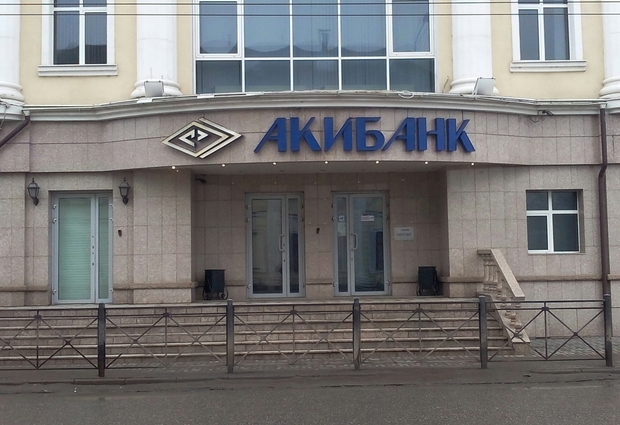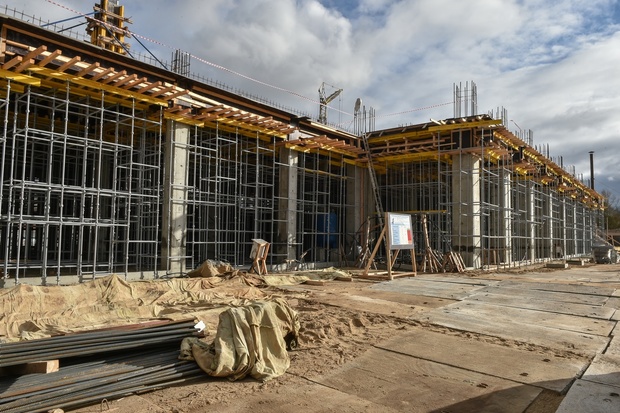Public sale: Innopolis, KZSK-Silicon and unprofitable plants
Seven Tatarstan enterprises, the implementation of which is under question, have fallen under the federal privatization program for the next two years
The Russian government has approved a privatization plan for the next two years. Out of 477 joint stock companies and 298 federal state unitary enterprises, only 7 enterprises are located in Tatarstan. In total, the Republican assets worth more than 5 billion rubles. However, their condition gives rise to doubt that they will find their buyers. The largest privatised asset is Innopolis, to be exact — the real estate of the eponymous university in the science city, which gives a profit not allowing you even to dream about a payback. Among the assets are also KZSK-Silicon, developing at the expense of state support, and three loss-making companies.
A modest contribution of Tatarstan to the privatization
On 15 February, the Russian government posted on its website the privatisation plan for 2017-2019. It involves the reduction of state shares in companies occupying leading positions in their respective economic sectors. The decree approving the privatisation plan was signed by Prime Minister Dmitry Medvedev.
''The plan involves the privatisation in 2017-2019 of the federally owned shares of 477 joint stock companies, 298 federal state unitary enterprises, the share of participation of the Russian Federation in ten limited liability companies, more than 1.000 objects of other property of the state treasury,'' says the text of the order.
Despite this ambitious plan across the country, the number of Tatarstan enterprises subjected to privatisation turned out to be modest. The forecast plan includes seven companies: KZSK-Silicon, Kazan experimental pilot plant Pribor, Kazan pilot plant Etalon, Innopolis, Center for quality confirming of products and services, the Central scientific research Institute of Geology of nonmetallic minerals, joint-stock commercial mortgage bank AKIBANK. Each has different share. In Akibank, it is a tiny package of less than 1%, but in other companies, the packages are more significant. The total amount of assets exceeds 5 billion rubles.

Who needs campus and sports complex in Innopolis?
In accordance with the plan of privatization of state assets of the Russian Federation in 2017-2019, it is planned to sell 97.46% of the shares of a certain Innopolis, and this is the main asset being sold. There are many companies, containing in the title the word ''Innopolis'' in Tatarstan, but only Innopolis JSC has a state share. Now, according to the base Spark-Interfax, 97.46% of the shares belong to the Federal Agency for state property management (Rosimushchestvo), and the rest — to Innopolis City JSC. In its turn, it belongs to the management company Prominvest PLC, which is almost entirely controlled by Svetlana Ziganshina, the wife of Ravil Ziganshin, head of the Tatarstan construction monster, the production and construction association Kazan.
This company was initially created as the operator of construction of a new science town near Kazan. Now, the joint-stock company owns and manages real estate Innopolis University in the city with the same name: the academic building, dormitories, sports complex. Actually, there is no any large-scale commercial activities. In 2015, the turnover of the company amounted to 33.6 million rubles, net profit — 22.5 million. With such profit, the payback period of investments will take hundreds of years. Hardly any commercial company will be interested in such proposal, if, of course, we are not talking about formal privatization.
Another scientific institution, which is supposed to be sold is FSUE TSNIIgeolnerud, now the Institute belongs to Rosnedra (100%), authorised capital is 20 million rubles, annual revenues in 2015 — 126 million, the profit — 3.4 million rubles.
Will KZSK be cut off from federal money?
The government's plan of privatisation also involves the transfer of the whole package of 48.95% of shares of KZSK-Silicon JSC. The company's authorised capital, according to the base Spark-Interfax, is 1.7 billion rubles. The company is a subsidiary of the Kazan plant of synthetic rubber JSC (KZSK owns 51.05% stake), the main shareholder of which is Evgeniya Dautova, co-owner and leader of Spurt-Bank. The enterprise implements an investment project for construction of methylchlorosilanes.

The start to the construction of the plant for the production of silicone in Kazan was given in 2014. The project cost was estimated at 9.8 billion, including 7.8 billion rubles was to be credit funds of Vnesheconombank (VEB). According to the plan, by 2016, KZSK-Silicon was to meet more than half of the Russian need in this material, and also to export products abroad. However, in 2015, there was a doubling of the project cost. As a result, in February 2016, the main development bank of the country that acted as a lender of the full cycle of construction suspended the construction of the large industrial complex for the production of methylchlorosilanes (raw material for sealant) in Kazan. In December 2016, the head of VEB Sergey Gorkov, during a visit to Tatarstan, announced plans for implementation of three projects at 115.8 billion rubles in the Republic. It was also about the intentions of VEB to continue funding of the second phase of KZSK-Silicon.
The completion of KZSC-Silicon lacks 3 billion rubles. As of November 2016, primary borrower to raise loans to finance the construction was Kazan synthetic rubber plant JSC. It is unclear whether the plans for government funding of this project will remain in the case of privatisation.
Unprofitable pilot plants
It is also planned to privatise the open joint stock company Kazan pilot plant Etalon established in 1929. The company manufactures measuring products to filling stations, as well as repair instrumentation. The result of privatisation is to be the transfer of 100% of the shares of the company (46.360 pieces).
According to the base Spark-Interfax, the company's authorised capital as of November 2007 was estimated at 4.636.000 rubles. The revenue (as of 31 December 2015) was 21 million rubles, and losses — 340.000 rubles.
In 2015, the company was withdrawn from the historical centre of Kazan. With this purpose, from Kulon CJSC it was purchased land under the house No. 124 on Adelya Kutuya Street and located real estate items. Here, Etalon was located on a leasehold basis. Kulon was supposed to receive land in Vysokogorsky, Laishevsky districts of Tatarstan instead.
100% of the shares of another pilot plant of Kazan, Pribor (KOEZ Pribor JSC) in the amount of 451.874 pieces also will go to the private investor until 2019. At the moment, the company positions its products (instruments and appliances for measuring, testing and navigation) as ''the best instruments of Russia''.
''All the instruments produced by the plant are the best instruments of Russia. Our plants were awarded four gold medals, two silver medals, as well as diplomas and certificates at the Russian and international exhibitions. In the result of the use of our facilities by consumers the accuracy (precision) in the consumption of all energy increases annually, what gives the multimillion-dollar extra profit within the framework of Russia,'' says on the main page of the website.
The authorised capital of enterprises in March of last year was 4.5 million rubles. The revenue in 2015 barely exceeded 19 million rubles. At the same time, the company has losses at 3 million rubles.
Under the privatisation plan, there also has fallen little-known Center of quality confirmation of products and services JSC, which is currently 100% owned by the Ministry of Land and Property of RT. With the authorised capital at 146 million rubles, its net profit in 2015 amounted to only 2.8 million rubles, and the loss — 5.6 million rubles.